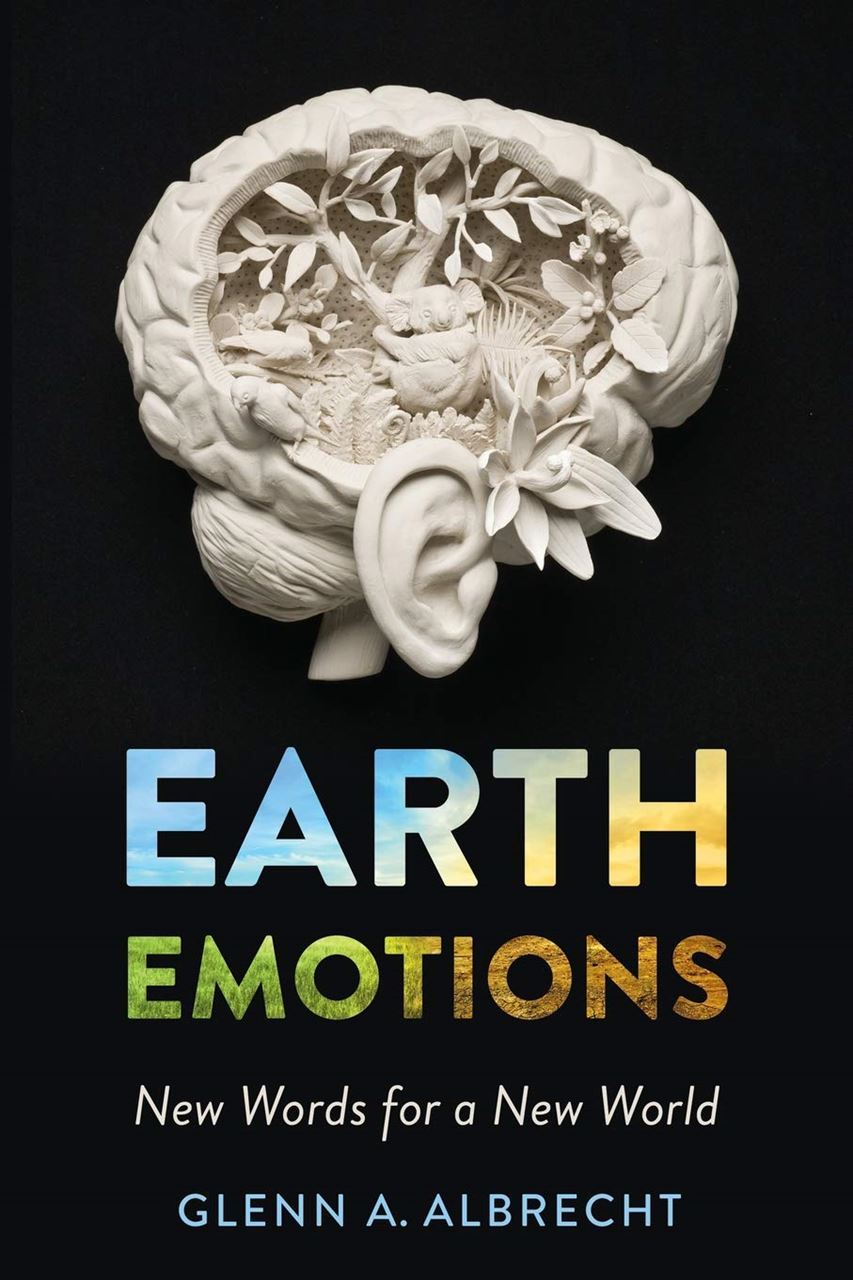
Earth Emotions: New Words for a New World by Glenn A. Albrecht
Albrecht, who is an Australian professor, environmental philosopher and farmer, diagnosing the condition of despair afflicting people around the world. He coined the now widely recognized term solastalgia —a homesickness for the place you love as it is desolated before your eyes. The experience is not new or unique to our times; colonized and conquered people have experienced it throughout history. Albrecht makes clear that humans have always had to balance negative and positive emotions to survive and make sense of the world they lived in, that both types of emotions were necessary. But today the negative ones have come to dominate.
Earth Emotions begins with an autobiography illuminating how his love of nature was cultivated by his family in south western Australia, where in the 1950s and ‘60s, he became intimate with the plants and animals surrounding his suburban home and his grandparents farm. Some of his sense of standing apart from the general consensus is linked to the fact that -- because his father has some Sri Lankan ancestry -- he was bullied for not being “white” enough. Albrecht has always felt an affinity with Aboriginal culture and focuses on some of their ancestral ways of managing the continent, which should be recognized as valuable.
The Anthropocene world system exploits and dominates nature; it has meant the extinction of many species and looks toward our own extinction. To transcend it, Albrecht proposes a Symbiocene. This is an era of interconnectedness from which we learn and emulate processes utilized by tree-roots and micro-rhizomes and other deeply symbiotic complex systems. This, he suggests, needs to be grounded in a new spiritual paradigm. Such a paradigm would entail a relinquishment of the isolated self as the prime locus of meaning and would be grounded in affinity with all that is porous, reciprocal, integrated, and in dynamic flux, like the earth. Our bodies, he points out, are in fact a menagerie of bacteria, viruses, fungi that we incorrectly treat as an unchanging unity.
Equal parts scientist and philosopher, Albrecht loves language and the precise and thoughtful writing here is often also poetic, threaded through with ideas from Plato, Hegel, Rudolf Steiner, Aldo Leopold, Erich Fromm, W. H. Auden and others. As the sub-title of the book suggests he is as committed to transforming our thinking as our praxis.
In the grand tradition of fellow Australian Jeremiahs such as Helen Caldicott on nuclear weapons and Peter Singer on animal rights, Albrecht is a large-picture thinker grounded in experience and empathy. And he is absolutely right. Tragically, his detailed and rational proposals for a fundamental transformation of our material civilization and our psychological world view, seem at this moment as unlikely as world disarmament or the immediate abolition of factory farming.
Overall, there is a bit too much creating of neologisms for my taste because I feel it can put off readers unable to take on the apparatus of new terminology. Still, his inspiring and deeply comprehensive vision is worth studying.
Submitted by ecoartspace member Marina deBellagente LaPalma.
LaPalma was born in Milan, Italy. She was a founder of Kelsey Street Press in Berkeley in the 1970s and a performance artist and art critic in Los Angeles in the 1980s. In the 1990s she was on the Board of The Children’s Book Project in San Francisco, a nonprofit dedicated to literacy-building in young children and served on the Menlo Park Arts Commission for five years. She was also a bookseller at Stanford University Bookstore. She lives in Santa Fe, New Mexico.